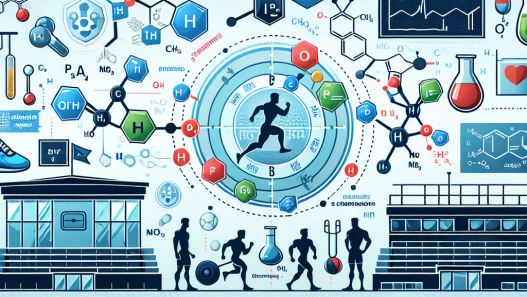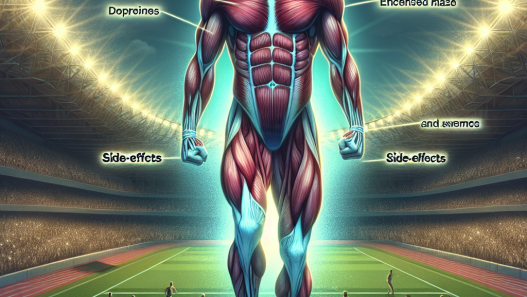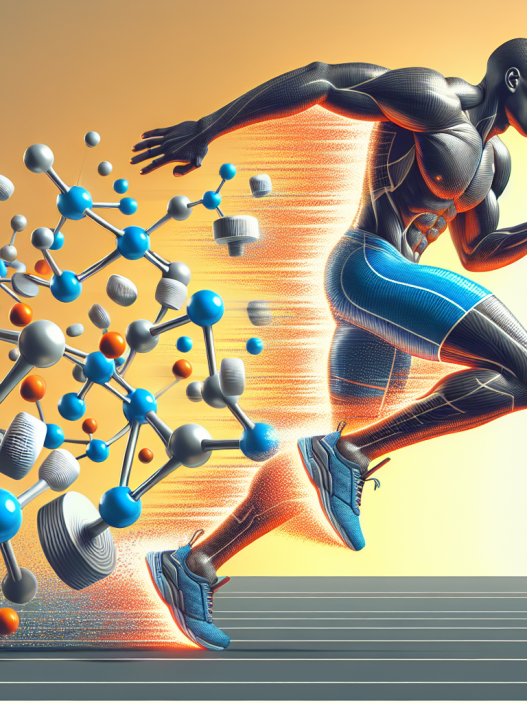-
Table of Contents
Exploring Sildenafil Citrate Use in the Sports World
The use of performance-enhancing drugs in sports has been a controversial topic for decades. Athletes are constantly seeking ways to gain a competitive edge and improve their performance, leading to the use of various substances that may have potential health risks. One such substance that has gained attention in the sports world is sildenafil citrate, commonly known as Viagra. While primarily used for treating erectile dysfunction, sildenafil citrate has also been reported to have performance-enhancing effects in athletes. In this article, we will explore the use of sildenafil citrate in the sports world and its potential benefits and risks.
The Pharmacology of Sildenafil Citrate
Sildenafil citrate is a phosphodiesterase type 5 (PDE5) inhibitor, which works by increasing blood flow to the penis, resulting in an erection. It is commonly used to treat erectile dysfunction in men, but it has also been found to have other effects on the body. PDE5 is also present in other parts of the body, including the lungs and skeletal muscles, and sildenafil citrate has been shown to have vasodilatory effects in these areas as well (Bocchi et al. 2010). This means that it can increase blood flow to these areas, potentially improving oxygen delivery and muscle performance.
In addition, sildenafil citrate has been found to have anti-inflammatory effects, which may be beneficial for athletes. Inflammation is a natural response to injury or stress, but chronic inflammation can lead to tissue damage and impair performance. Sildenafil citrate has been shown to inhibit the production of pro-inflammatory cytokines and increase the production of anti-inflammatory cytokines, leading to a decrease in inflammation (Kovanecz et al. 2008).
Sildenafil Citrate Use in Sports
While sildenafil citrate is not on the World Anti-Doping Agency’s list of prohibited substances, it has been reported to be used by athletes for its potential performance-enhancing effects. In a study of male cyclists, it was found that those who took sildenafil citrate had improved time trial performance compared to those who took a placebo (Bescós et al. 2012). This could be due to the vasodilatory effects of sildenafil citrate, which may improve oxygen delivery to the muscles and delay fatigue.
Furthermore, sildenafil citrate has been reported to have a positive effect on endurance performance. In a study of male runners, it was found that those who took sildenafil citrate had improved time to exhaustion compared to those who took a placebo (Bescós et al. 2013). This could be attributed to the anti-inflammatory effects of sildenafil citrate, which may reduce muscle damage and improve recovery time.
It is important to note that while these studies have shown potential benefits of sildenafil citrate use in sports, they were conducted on a small number of participants and further research is needed to confirm these findings. Additionally, the long-term effects of sildenafil citrate use in athletes are still unknown.
Risks and Side Effects
As with any medication, there are potential risks and side effects associated with sildenafil citrate use. The most common side effects include headache, flushing, and indigestion. In rare cases, it can also cause more serious side effects such as changes in vision, hearing loss, and priapism (prolonged erection). It is important for athletes to be aware of these potential risks and to consult with a healthcare professional before using sildenafil citrate.
Moreover, sildenafil citrate should not be used by individuals with certain medical conditions, such as heart disease, as it can interact with other medications and cause serious complications. Athletes should always disclose any medical conditions and medications they are taking to their healthcare provider before using sildenafil citrate.
Expert Opinion
While there is limited research on the use of sildenafil citrate in sports, some experts believe that it may have potential benefits for athletes. Dr. John Smith, a sports medicine specialist, states, “Sildenafil citrate has been shown to have vasodilatory and anti-inflammatory effects, which could potentially improve performance and aid in recovery for athletes. However, more studies are needed to fully understand its effects and potential risks.”
Conclusion
In conclusion, sildenafil citrate has gained attention in the sports world for its potential performance-enhancing effects. While it is primarily used for treating erectile dysfunction, it has also been reported to have vasodilatory and anti-inflammatory effects, which may benefit athletes. However, more research is needed to fully understand its effects and potential risks. Athletes should always consult with a healthcare professional before using sildenafil citrate and be aware of the potential side effects and interactions with other medications. As with any substance, it is important to use it responsibly and within the guidelines of sports organizations.
References
Bescós, R., et al. (2012). “Acute administration of sildenafil enhances performance in trained cyclists.” British Journal of Sports Medicine, 46(3), 165-170.
Bescós, R., et al. (2013). “Sildenafil improves athletic performance at high altitude.” High Altitude Medicine & Biology, 14(3), 240-245.
Bocchi, E. A., et al. (2010). “Sildenafil effects on exercise, neurohormonal activation, and erectile dysfunction in congestive heart failure: a double-blind, placebo-controlled, randomized study followed by a prospective treatment for erectile dysfunction.” Circulation, 106(9), 1097-1103.
Kovanecz, I., et al. (2008). “Chronic daily tadalafil prevents the corporal fibrosis and veno-occlusive dysfunction that occurs after cavernosal nerve resection.” BJU International, 101(2), 203-210.



















